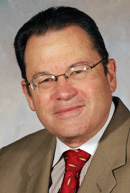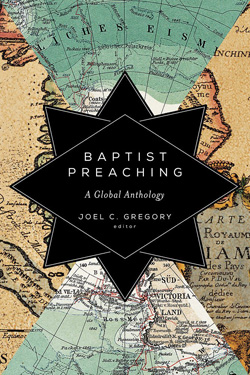Preachers should learn from their global peers, Gregory says
WACO—North American preachers could learn much from their peers in the Global South, professor and pulpiteer Joel Gregory said.
“It shouldn’t be a surprise, but there is great preaching all over the world that we don’t know about,” said Gregory, professor of preaching at Baylor University’s Truett Theological Seminary, who collected and analyzed representative samples of Baptist preaching from around the world.
 Joel Gregory“Sermons in the Global South seem more direct and authoritative,” he observed, noting the example of a sermon delivered on the occasion of a Nigerian governor’s birthday.
Joel Gregory“Sermons in the Global South seem more direct and authoritative,” he observed, noting the example of a sermon delivered on the occasion of a Nigerian governor’s birthday.
“It would have made Amos blush,” Gregory said, alluding to the bold and plainspoken Old Testament prophet. “He put the ax to the root, preaching about corruption and injustice.”
Gregory edited Baptist Preaching: A Global Anthology, a collection of 35 sermons by Baptists around the world, and provided analysis based on his findings.
“I hope it is an analysis akin to that of a golf commentator—whispering, so as not to pre-empt the message or even to incline people a certain way toward the sermons,” he said.
Tasked by BWA
The book grew out of his work as a member of the Baptist World Alliance Commission on Worship and Spirituality. The commission asked Gregory to collect and edit two-dozen sermons by Baptists in Africa, Asia, the Caribbean, Europe, Latin America and North America.
He wrote a 70-page analysis of the sermons, which he presented at the 2011 BWA gathering in Kuala Lumpur, Malaysia. He subsequently expanded the collection to include an additional 11 sermons, and Baylor University Press agreed to publish the book, scheduled for release June 15.
The book is dedicated to Paul Fiddes, former principal of Regent’s Park College at Oxford, and underwritten in part by friends and colleagues of Fiddes. Truett Seminary and the Kyle Lake Center for Effective Preaching provided additional funding to make the book available for free distribution to participants at the 2014 BWA gathering in Izmir, Turkey.
 About half the sermons in the collection were delivered on special occasions, and half were delivered to a specific church.
About half the sermons in the collection were delivered on special occasions, and half were delivered to a specific church.
“They are reflective of all good preaching, in that they are time-specific and venue-specific,” Gregory said.
Reflecting the culture
In part, the sermons reflect the culture in which they were delivered.
“For instance, I love the vitality of Caribbean preaching. It carries within it the vitality of the culture,” he said. “The very best of the culture is embedded in the sermons, with their creative use of language and imagery.”
The sermons also reflect issues specific to particular locations. For instance, messages from Latin America reflect how Baptists there are confronting the popularity of “exported strange theology” such as the prosperity gospel, Gregory noted.
Sermons from Africa, where the church is experiencing rapid growth and congregations are dealing with practical issues related to governance and ecclesiology, are “like reading something from the book of Acts,” he said.
A sermon from Australia offers a good example of how to preach an evangelistic message in a secular, post-Christian culture, and preaching from Asia and the Pacific Rim provide insights into how to present the unique claims of Christianity in a pluralistic society, he added.
Common traits
Three common traits characterize all the sermons in the collection—the centrality of Christ, the authority of Scripture and the importance of the church, Gregory observed.
“Jesus remains at the center of Baptist preaching. Even when he is not in the spotlight, he is never off-stage,” he said.
The sermons do not focus on specific theories of biblical inspiration or any of the different ways of expressing belief in the Bible that divided many Baptists in North America in recent decades, Gregory noted. Instead, biblical authority undergirds all the sermons as “an unquestioned assumption,” he said.
“Finally, there is abiding concern for local churches. There is great interest in the health and vitality of the local church.”